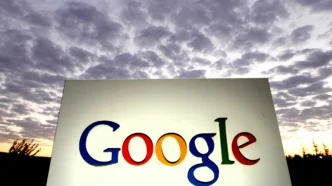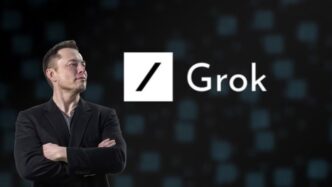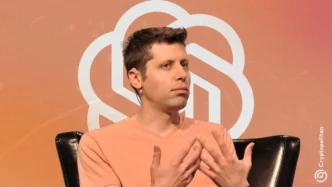Google is changing how we search—and not everyone is ready. Instead of scrolling through the familiar list of blue links, more users now see a neatly packaged AI-generated summary at the top of their results page. These “AI Overviews,” as Google calls them, promise to deliver instant answers without needing to leave Google’s site. But while the convenience is undeniable, the implications for content creators, web traffic, and the open internet are becoming impossible to ignore.
According to early data, websites that once thrived on organic clicks are already seeing steep declines. Since Google’s AI Overviews began rolling out, top-ranked sites have lost more than 34% of their traffic. For everyday users, that may seem like a win—less clicking, more answers. But for the people behind the content, it’s raising uncomfortable questions about the future of discovery, revenue, and even truth on the web.
One AI Answer, Countless Missing Clicks
For more than 20 years, Google served as a digital crossroads, connecting users to a broad mix of sources. Blue links meant choice. Now, with AI Overviews, that variety is often replaced with a single, polished response generated from multiple web pages. It’s convenient—especially for complex queries that once required jumping between tabs—but that same convenience can obscure what’s being left out.
When users get a quick answer, they may not scroll any further. They might not click through to read the full story, understand the context, or hear alternate perspectives. Worse still, some early AI answers were flat-out wrong—suggesting things like adding glue to pizza or eating a rock a day. The risk of misinformation becomes more serious when the AI’s response is seen as the final word, especially when backed by the perceived authority of Google.
Even when AI Overviews cite sources, the diversity of information remains limited. Over 93% of links come from the top 10 traditional search results. That might reduce factual errors, but it also means niche sites and emerging voices get drowned out. The open web, once a space for exploration, becomes more filtered—more controlled.
Content Without Clicks: The New Threat to Publishers
The shift is having a measurable impact. New data from Ahrefs shows that the average click-through rate for the top organic result dropped from 7.3% in early 2024 to just 2.6% by March 2025. This isn’t a blip—it’s a dramatic and sustained shift. Content that once brought in revenue through page views and ad impressions is now being summarized—and essentially absorbed—by Google.
And it’s not just the #1 result that’s affected. If users don’t click the first link, they’re even less likely to click the second or third. The AI summary pushes the traditional results further down the page—sometimes by more than 1,500 pixels—making them harder to even find. On mobile, it’s worse.
For publishers and independent creators, this means their work is being used to train and feed AI systems—without the traffic, recognition, or financial return. Some media experts worry this could create a dangerous cycle: as site visits and ad revenue fall, creators may cut back or lock their content behind paywalls. In turn, the AI has less quality information to pull from. It’s a feedback loop that could slowly starve the web of the very content these systems rely on.
The SEO Game Has Changed
SEO used to be a race to the top of the page. Now, it’s a race to be noticed at all. With AI Overviews dominating prime real estate on search results, traditional SEO strategies are no longer enough.
To stay visible, businesses and marketers are pivoting toward a new goal: getting their content cited inside the AI Overview itself. This emerging practice, dubbed “Answer Engine Optimization,” involves structuring content in ways that appeal to AI’s preferences. That means using clear Q&A formats, adding structured data, and writing in ways that directly address likely user queries.
While backlinks and authority still matter, content creators are now essentially writing for the AI, not just for readers. And while traffic volume might be lower, there’s a silver lining: users who do click through from an AI Overview tend to be more engaged—they’ve already seen a preview and are coming for deeper insights.
To sweeten the deal, Google has started embedding more direct links into its summaries and experimenting with ad placements alongside them. Still, the underlying reality is unchanged: Google’s AI decides who gets seen—and who doesn’t.
Who Gets to Curate the Web?
The heart of this issue is about control. In the past, Google acted as a gateway, pointing users to a range of sources. With AI Overviews, it becomes more of an editor—deciding what gets summarized, what gets left out, and what the user sees first.
That shift raises ethical and economic questions. If AI is curating knowledge, who decides what information matters? Will minority viewpoints or new voices get silenced? Already, there’s concern that AI Overviews favor the same big sites, reinforcing existing power structures.
Economically, the impact is just as troubling. AI relies on the open web for its knowledge—but by discouraging clicks, it risks drying up the very well it draws from. Some AI companies have started cutting deals with major publishers for direct access to content, creating a tiered system where big players are rewarded and smaller ones are ignored.
At the same time, aggressive web scraping by AI bots is surging—more content is being taken, even as less traffic is being returned. This imbalance isn’t sustainable.
The Future of Search—and the Web—Is at Stake
There’s no doubt that AI Overviews are a major leap in convenience. But unless Google and others find a way to support the open web, the long-term cost could be steep. Creators may stop producing the free, quality content that powers AI in the first place. And users may find themselves locked into a loop of increasingly narrow information.
Some experts suggest a revenue-sharing model, where publishers earn a cut of the ad dollars generated by AI-enhanced search. Others call for UI changes that nudge users to explore source material more directly. Policymakers, too, are paying attention—drawing parallels to past fights over how aggregators use and monetize news content.
What’s clear is that we’re at a turning point. If AI becomes the default gateway to the web, we need new rules—and new respect—for the creators who make that web worth exploring.
Google’s AI Overviews might be the future of search. But whether they strengthen or shrink the open web will depend on what happens next.













